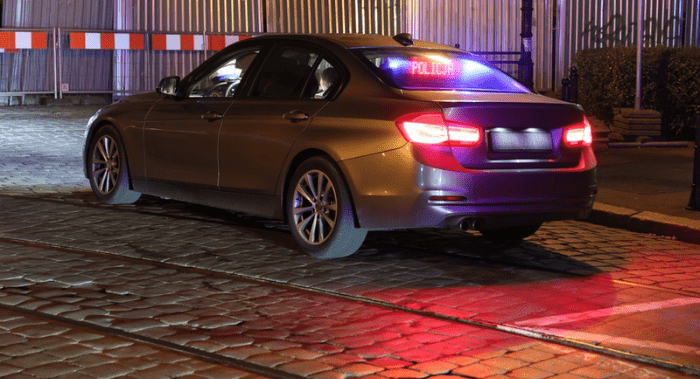Complete the form to schedule a free consultation with a traffic lawyer
Unmarked Police Cars and Traffic Stops

In the realm of traffic enforcement, unmarked police cars are a somewhat controversial tool used by law enforcement agencies across the country. Unlike the familiar, clearly marked patrol vehicles, unmarked cars don’t immediately identify themselves as law enforcement, which can create confusion and concern for drivers. So, what should you do if you’re stopped by an unmarked police car, and what are the specific laws you should be aware of? Let’s explore.
What Is an Unmarked Police Car?
An unmarked police car is a vehicle that has no clear police insignia, such as logos or light bars, making it indistinguishable from ordinary civilian vehicles. They are often used for undercover work, traffic enforcement, or by high-ranking officials within the force.
How Is a Traffic Stop with an Unmarked Police Car Different?
Laws regarding the use of unmarked police cars for traffic stops vary by state. Some states, like Washington, have specific laws that restrict unmarked cars’ usage to only particular circumstances. Others may have no such restrictions.
The Driver’s Response
A traffic stop by an unmarked car may create suspicion and fear, particularly if it’s nighttime or in a secluded area. If you are uncertain whether the unmarked car is indeed a police vehicle, you have the right to:
- Slow Down and Acknowledge: Reduce your speed and signal your acknowledgment to the officer who is pulling you over.
- Call 911: If you’re unsure, you can call 911 to verify the legitimacy of the stop. It is never inappropriate to verify the identity of the officer and to ensure your own safety.
- Drive to a Safe, Populated Area: If possible, indicate your intention to pull over but continue to a well-lit, populated area.
Specific Laws and Guidelines
Washington State
As mentioned, Washington State has specific laws (RCW 46.08.065) that generally prohibit unmarked cars’ usage for routine traffic stops. Exceptions are made for specific tasks like detective work and patrolling by ranking officers.
Illinois
Illinois has guidelines rather than strict laws, suggesting the use of unmarked cars mainly for surveillance and investigative functions but not outright prohibiting their use for traffic stops. They are restricted from initiating a pursuit, however, requiring them to call for marked patrol cars before they can chase a suspect.
Texas
In Texas, there is no specific prohibition, and unmarked police cars can be used for regular traffic enforcement. Still, protocols and usage might vary by department, but on the whole, an on-duty police officer might be driving beside you on the highway at any given time.
What Should Drivers Do?
With such varied regulations by state, what principles can drivers hold to in order to know how to handle being pulled over by an unmarked police vehicle? Wherever you live, keep these things in mind:
- Know Your Rights: Familiarize yourself with your state’s specific laws concerning unmarked police cars.
- Stay Calm: If you are stopped, remain calm, and follow the officer’s instructions. Ask for identification if necessary.
- Consult an Attorney: If you feel your rights were violated during the stop, consult with a traffic attorney to understand your legal options.
Hire an Attorney
In the world of traffic law, there is never a reason not to fight your traffic ticket. However, not all of us can become qualified traffic attorneys, but finding legal representation is easier than ever.
Click here or call 1-888-296-3059 for a free consultation with a qualified traffic attorney today.
